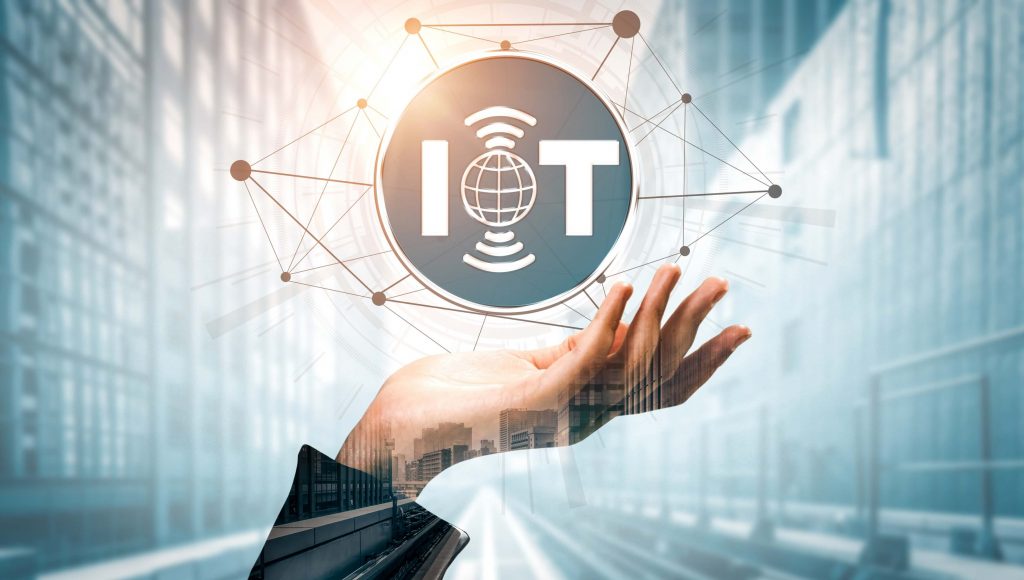
Introduction: Benefits of Blockchain for IoT
The Internet of Things does connect several individuals from different corners. It is a revolutionary technology that bridges the gap between the machines and individuals by collecting and sharing information using different devices. Such devices do include sophisticated chips, actuators, sensors, and much more. Such devices are connected to physical devices, which collect data and send it across the IoT network. It does have capabilities to share data from different locations.
With the use of different technologies, such as AI and ML, IoT becomes more revolutionary. Whatever data is collected using the Internet of Things, different AI and ML algorithms are used to analyze data. The Internet of Things does build a network that transmits sensitive data; hence the security of such data is necessary. With the use of technologies like Blockchain, it has become easy to secure the IoT network.
Security in IoT devices
Security of the IOT network is a significant concern as it does heifers massive scale deployment. Different IoT devices do have lots of vulnerabilities, which makes it easy for hackers to perform DDoS attacks. In DDoS attacks, different computers are targeted and vast data request areas are made, which causes the denial of service attacks for users. Various DDoS attacks have generated lots of issues for industries and individuals. AN unsecured IoT network is much vulnerable to different attacks.
Another main concern is Scalability. IoT networks grow and are controlled by centralized authorities that authenticate, connect, and authorize different nodes in the IoT network. Huge investments are needed to make such big servers to handle large information exchange. If the entire network goes down, the server is not available.
Blockchain technology is a revolutionary technology or distributed ledger technology. Such technology has great usability to secure different IoT networks and solve different challenges related to security and scalability. Blockchain is a game-changer due to some unique features. Blockchain technology involves the use of distributed ledgers, where no central authority is there. All data validation and recording are done on different nodes of the network. Blockchain does not allow any user to delete or amend any data stored in the Blockchain.
How Blockchain technology solves different challenges such as security and scalability
Different IoT networks are capable of processing different kinds of data transactions across different industries. It makes it difficult to find any data leakages if any cyber attack is done by cybercriminals. IoT generates a huge amount of data, and different stakeholders are available in the network. And due to a large number of stakeholders, different data is not clear.
Blockchain. Technology would build an infrastructure for different devices, which can directly connect and transfer a piece of property like money or data. To enable different exchanges of information, IoT devices can be used and smart contracts would enable agreement between two different parties. Such features would enable the autonomous functioning of different smart contracts.
Blockchain technology helps in different ways to make the IoT network more secure and scalable.
- A distributed ledger is a blockchain network that stores data in an immutable form. It means that data in the blockchain network is not edited. Hence it becomes difficult for different hackers to make changes in data stored in a blockchain.
- With the use of blockchain technology, the IoT network would have another layer of security. Hackers would be required to use different techniques to make the security layer vulnerable and access the network. Blockchain technology does build a robust level of encryption of data in the Internet of Things network which makes it very difficult to override the data.
- Blockchain technology brings transparency and it allows only authorized users to access the network. It builds a reliable way of accessing different data in the IoT network.
- Blockchain technology makes its network more scalable since it increases the processing of different transactions in the IoT network. Different IoT devices can be connected to the IoT network. It makes a distributed ledger technology that makes a viable solution.
- Blockchain technology allows different stakeholders to trust each other. Blockchain allows different industries to reduce fees by eliminating costs by eliminating the processes for different IoT gateways.
- Blockchain technology would make sure that IoT based devices are reliable. Different IoT networks do have a central gateway for communication. But with the use of Blockchain, it would make sure that no single source can control the device and gain all different information.
The Internet of things has rolled out different consumers as well as businesses. Different devices are great to use cases of the Internet of things. Blockchain technology is not only underlying technology for digital currencies. But Blockchain technology has different use cases along with digital currencies.
Blockchain technology with IoT would lead to great devices that will share information without any involvement of centralized authority. Blockchain and IoT would make everything more secure, scalable, and useful for everyone. It would connect different devices securely and increase the scalability for sharing data.
Use of smart contracts in Internet things devices
Different smart contracts work like traditional contracts. Smart contracts are self-executable contracts that can be used by different stakeholders. Such contracts would automate that payment without any need for manual work.
Blockchain technologies and the Internet of things
A very basic problem with different IoT devices is the security structure. IoT networks work based on a client-server model which is managed by a centralized authority. It does cause a single point of failure. Blockchain technology does address such a problem by making the whole network decentralized. While building IoT devices with the use of blockchain ledger, different challenges need to be considered.
Scalability
- Networks need to be scalable, and it does allow users to handle massive amounts of data collected using large networks. It does have low transaction speeds lattices. With a great model, it would make it easier to make solutions with fewer difficulties and quickly.
Sensors
- It does need to have sensors that could measure data correctly and according to need. It would make sure that the transaction executed is secure and correct. With Blockchain technology, it would be easy to ensure the integrity of different IoT devices, which cannot be altered using external interventions.
Network Security and confidentiality
- The security of the Internet of Things network is essential. And it can be done using Blockchain only. Blockchain technology would make sure to save the identities of users using the public key. Different industries would be able to make more private networks by sharing any details about the users.
Different Industries working in Blockchain and IoT, and its use cases
The Internet of Things is the technology behind different smart sensors. Such make devices more portable and interactive with different blockchain networks. Both Blockchain technology and the Internet of things has a large potential to create a marketplace of different services and devices. It gives different industries to create valuable information from the collected data. With a large number of blockchain protocols, IoT devices, and devices, it shows that blockchain technology has a great use case.
The Internet of Things is the technology behind different smart sensors. Such make devices more portable and interactive with different blockchain networks. Both Blockchain technology and the Internet of things has a large potential to create a marketplace of different services and devices. It gives different industries to create valuable information from the collected data. With a large number of blockchain protocols, IoT devices, and devices, it shows that blockchain technology has a great use case.
According to different statistics, the scope of blockchain technology and the Internet of things is huge. It is used in insurance and would be used in different industries. It builds a great model using telematics.
Different Industries where both Blockchain and IoT can be used are the following
- Blockchain and IoT can be used in the insurance industry. Such a use case would allow data analysis more easily and it would automate everything.
- IoT and Blockchain are different security and manufacturing. Blockchain would make it easy to secure data and solve different security problems. IoT and Blockchain would solve different security challenges.
- Another main use case of IoT and Blockchain is in the building management and industry management. Blockchain technology would store all different transactions that occur between different machines. With the use of blockchain technology, energy sharing would be and decentralized. With IoT devices, it would be easy to sell renewable energy.
Some more scenarios where IoT and Blockchain can converge
Blockchain technology and the Internet of Things have great use cases. Blockchain technology can be used in different industries like the electricity industry to buy or sell energy using smart contracts. Smart contracts are autonomous contracts that automate different transactions.
Different security and control reasons lead to more efficiency in music systems. With the use of different technologies, like AI and mL, decision making can be more efficient and it would enable some new use cases. Several areas are available where Blockchain and pity can be used.
Different use cases of IoT and Blockchain are smart contracts, network sharing, end-user authentication, network management, and supply chain.
Conclusion
Blockchain technology and IoT both are revolutionary technology and have great potential, but due to different constraints, it lacks widespread adoption. Such concerns are caused due to technicality and security concerns. Different industries are using the combination of technologies to increase security and work with different scalable solutions.



